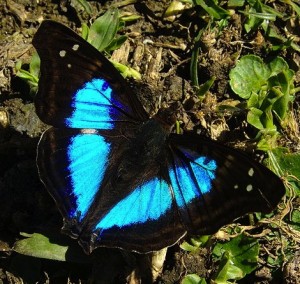Oh, I have made myself a tribe
out of my true affections,
and my tribe is scattered!
How shall the heart be reconciled
to its feast of losses?
In a rising wind
– from The Layers by Stanley Kunitz
Tag: poetry
I, too, sing America
We’ve had quite a number of Langston Hughes‘ poems recited in the mornings. This morning it was “I, too, sing America” and I ran into the above YouTube video, narrated by the author (the narration can be found at The Poetry Archive).
“I, too, sing America” was written in response to Walt Whitman’s “I, Hear America Singing” (Gonzales, date unknown), which ties into the story of advancing civil rights in the United States.
Poetry in the morning (update 2)
Hope
Know no fear.Hope dares to blossom
Even inside the abysmal abyss.Hope secretly feeds
And strengthens
Promise.
– Sri Chinmoy
Poetry in the mornings right at the end of community meetings are going well. We’re into our third round and we’re beginning to get some original poetry. Some students are also asking to do more poetry in Language Arts. We’ve also discovered Short Poems.org but, although I have not set a minimum word limit, we’ve established a good precedent for how short a poem can be and the group is policing itself quite nicely.
Poetry for adolescents
I’m always a little suspicious of things titled as “for adolescents” or similar, because they tend to satisfy someone’s memory of being young and don’t necessarily provide what adolescents actually need. Of course I’m guilty of the same bias but I do take some effort be aware and to be critical of my own choices because of it. That said, I listened to a couple of poems from Elise Paschen’s compilation of poetry for adolescents, “Poetry Speaks Who I Am: Poems of Discovery, Inspiration, Independence and Everything Else” on NPR’s Morning Edition today and some of them are pretty good.
The poetry anthology comes with a CD, and Paschen reads a few on the program. She also goes on to talk about the poems a little, giving a good example about how to respond to poetry. The first poem they discuss on the program, Rita Dove’s Flash Cards, though written from the point of view of a younger student, is quite good. There are also a couple of poems on the NPR article.
Since we’re still having poetry presentations in the morning I think it would be useful to play part of this interview to help shape the discussion.
Do they really not care?
Adolescents like to tick you off. Push all of your buttons to see what happens. And you want to ask, “Who are you really?” and, “Do your really not care?” We probably did the same when we were that age, but do you also remember how idealistic we were? The video below, from Penguin Publishing (found via The Dish) captures a bit of that duality of the adolescent mind. The use of white space and of just simply words also ties it quite nicely into our ongoing discussion of poetry in a “spark the imagination” kind of way.
Boredom in a fractal world

A few of my students have been complaining that we don’t do enough different things from week to week for them to write a different newsletter article every Friday. PE, after all, is still PE, especially if we’re playing the same game this week as we did during the last.
So I’ve been thinking of ways to disabuse them of the notion that anything can be boring or uninteresting in this wonderful, remarkable world. A world of fractal symmetry, where a variegated leaf, a deciduous tree and a continental river system all look the same from slightly different points of view. A counterintuitive world where the smallest change, a handshake at the end of a game, or a butterfly flapping its wings can fundamentally change the nature of the simplest and the most complex systems.
“Chaos is found in greatest abundance wherever order is being sought. It always defeats order, because it is better organized.”
— Terry Pratchett (Interesting Times)

There are two things I want to try, and I may do them in tandem. The first is to give special writing assignments where students have to describe a set of increasingly simple objects, with increasingly longer minimum word limits. I have not had to impose minimum word limits for writing assignments because peer sharing and peer review have established good standards on their own. Describing a tree, a coin, a 2×4, a racquetball in a few hundred words would be an exercise in observation and figurative language.
To do good writing and observation it often helps to have good mentor texts. We’re doing poetry this cycle and students are presenting their poems to the class during our morning community meetings. It had been my intention to make this an ongoing thing, so I think I’ll continue it, but for the next phase of presentations, have them chose descriptive poems like Wordsworth’s “Yew Trees“*.

The world is too interesting a place to let boredom get between you and it.
Mercenaries on the playing field
These, in the day when heaven was falling,
The hour when earth’s foundations fled,
Followed their mercenary calling,
And took their wages, and are dead.Their shoulders held the sky suspended;
They stood, and earth’s foundations stay;
What God abandoned, these defended,
And saved the sum of things for pay.– A.E. Housman
Three themes converged on the playing field today; poetry, competitive sports and video war games. We’d used Alfred Houseman’s “Epitaph on an Army of Mercenaries” for a lesson on OULIPO yesterday because it’s short and one of my small groups had presented a week ago so we were all familiar with the poem. We’d been trying post-games discussions after frizbee (and soccer) to learn sportsmanship. We’d been having issues with video games and the definition of the word “duty“. I’ve long suspected (and would love to find a study that looks into this) that video game players are more likely to give up when the odds are against them because they are so used to just restarting the game (or respawning).
Today at the end of our post game discussion, I recited Epitaph to highlight the strength of character shown by some of the players who put up a great comeback despite part of their team stopping playing. It was a serendipitous convergence of three themes we’ve been dealing with this entire cycle (if not the whole year). It was a moment when I really appreciated being able to be so engaged with all parts of the curriculum.
Poetry in the morning (update)
Some clichty folks
don’t know the facts,
posin’ and preenin’
and puttin’ on acts,
stretchin’ their backs.– from Weekend Glory by Maya Angelou
We’ve started poem presentations in the mornings. They are supposed to be a part of our daily community meeting, at the beginning as part of their sharing, but the meeting is such an established ritual that we frequently forget the poems until the end. What’s been nice is that the students have been reminding me about it rather than the other way around. This seems to indicate some interest.

Despite my having presented a couple poems, their having seen a video of Anis Mojgani’s excellent poetry performance, and their having read how to read a poem out loud, I had to do a lot of coaching for the first couple students; slow it down (it’s something I always have to work on myself); put some emotion into the performance; match the tone and expression to the meaning of the words.

I’m not the most experienced drama coach. Fortunately I did pick up one or two things from the excellent director we found for our play last winter (the importance of projection for example). It also helped that one of the first students to present has had quite a bit of experience in the theater, so, once I conveyed the idea that it was a performance, she knew what to do. Finally, because I’d called for volunteers to be the first presenters, the first few students who presented were not types to be easily embarrassed at being coached and commented on by myself and the rest of the class.

So far it’s worked very well. We’re doing one poem, from memory, a day, with no real theme for the week, rotating through the class. I’ll poll my students to figure out how they want to continue after we get through most of the class. Specific poets, poems on specific subjects, specific types of poems, there are a number of themes I’d like to try/negotiate. If I can get this started as an ongoing tradition there’ll be time to try it all.
